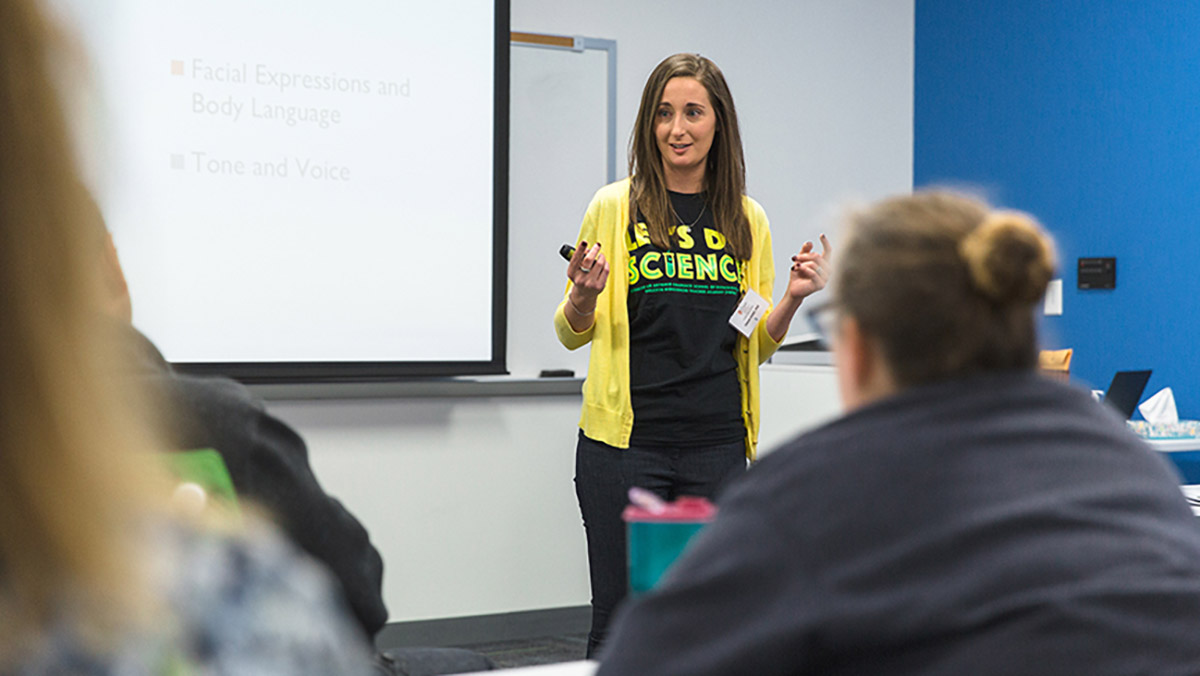Empowering K–12 STEM Teachers through a Bioscience Academy

Project Website(s)
SciEd Conference Poster
To view or download the SciEd Conference Poster click the link below.
-
Project Description
United States science education is in crisis. Top-down approaches failed to improve test scores at middle- and high-school levels, and teachers lost the ability to direct the content taught. This proposal seeks to improve the STEM education workforce through an in-service K–12 bioscience teacher academy. The academy promotes K–12 teachers’ collaborative work across school districts to support each other. San Antonio teachers self-organized and created three professional development approaches:
- peer mentoring (teachers coach each other)
- teachers learn to write small grants to obtain resources for their classrooms and community engagement, and
- improve school science nights and get parents involved.
Educational practices from this teacher-led community-based participatory program will provide models that improve biosciences and STEM education and better prepare students for science careers.
-
Abstract
To address the challenges of improving STEM education, a national committee (CoSTEM) representing 21 Federal agencies presented a strategic plan to the White House in May 2013. The first of five strategic priorities to improve STEM Instruction emphatically proposes to “prepare 100,000 excellent new K–12 STEM teachers by 2020, and support the existing STEM teacher workforce.” We directly address this priority, specifically supporting the existing STEM workforce.
In-depth Teacher Professional Development (TPD) is the core mission of the Teacher Enrichment Initiatives (TEI) at the UT Health Science Center at San Antonio. The Voelcker Biosciences Teacher Academy (VBTA) was established in 2010 with the vision to create a learning community of empowered public school teachers. By engaging the in-service teacher community, the VBTA is growing into an effective network that works across schools and school districts. The VBTA disseminates best practices, offers TPD, establishes peer-mentoring networks, and creates a culture that fosters independent, active life-long learning. To accomplish these missions, the VBTA teachers prioritized needs across their school districts, self-organized, and established three teacher-led committees that form the constructs for this SEPA proposal’s Specific Aims: Extending in-depth TPD (peer mentoring and grant writing), and community engagement.
Our specific aims to accelerate VBTA development and support the existing STEM workforce are:
Aim 1. Extend in-depth bioscience teacher professional development (TPD) through the following.
- Peer mentoring: We will promote peer mentoring through STEM curriculum development aligned with Next Generation Science Standards (NGSS) and Texas Essential Knowledge and Skills (TEKS), teacher-led discussions of current pedagogical techniques, and implementing annual fall and spring conferences.
- Grant writing: In monthly workshops, teachers will receive grant writing instruction (a novel aspect of TPD) to obtain resources from local school foundations, businesses, and government to enhance STEM education.
Aim 2. Community Engagement
Develop multi-disciplinary teams of teachers to directly support classroom science nights. A multi-disciplinary VBTA teacher team will develop kits and work with STEM educators to successfully promote science education in their schools.With SEPA support, we will build, evaluate, and transform the VBTA into a sustained network of empowered effective K–12 STEM educators. Lessons and practices from these community-based participatory TPD programs will provide adaptive in-service, teacher-led models to improve US bioscience and STEM education.
Project Audience
K-12 in-service teachers, primarily in STEM education; will support engaged teachers from other disciplines
Subjects Addressed
Teacher professional development, teacher grant writing and mentoring, science night development






